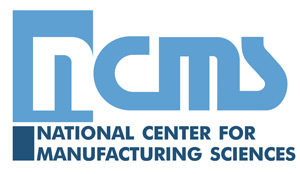The 2017 CTMA Workshop: Insight Into Innovation
NCMS is pleased to present the 2017 CTMA Workshop at this year’s CTMA Partners Meeting. This workshop empowers attendees to gain complete insight into the CTMA Program as well as gain a better understanding of the benefits of participating in (and/or sponsoring) a CTMA initiative.
The workshop is a unique, exciting, and interactive experience that allows participants to learn about the key elements that make up a successful CTMA initiative from project formation, approval, execution, closeout, and transition.
Key Elements
Essentials of a Great CTMA Initiative For an initiative to be considered for the CTMA Program, two key requirements must be met. To begin with, the initiative must focus on maintenance and sustainment. For the DoD community, this means technologies, processes, and best practices that address maintainability and sustainment of equipment, facilities, and/or other assets (vehicles, aircraft, ships, maintainer/Warfighter health and safety) over their lifecycle that support the Warfighter. Secondly, the initiative must show a direct benefit to the public good assuming success. Typically, DoD facilities are used as a test bed to demonstrate or pilot new technologies and processes that show promise for application into the commercial industry; improving quality, productivity, environment and/or worker health and safety leading to more affordable, environmentally-friendly products benefitting the general public.
MIPR Process/ Requirements
The government typically funds CTMA initiatives by means of a Military Interdepartmental Purchase Request (MIPR). The content of this document is specific to the CTMA Cooperative Agreement and is generated by the government sponsoring agency for the initiative. A MIPR template is available for review.
CTMA Concept Paper Guidelines
Every CTMA initiative begins with a concept paper. The concept paper is generally mutually written between the government sponsor and NCMS. The paper is a high-level document that outlines the need, the proposed solution, and clearly identifies the benefits to the general public, industry, and lastly, the government. There are specific requirements that a concept paper must include to be accepted by the OSD Contracting Office, Washington Headquarters Services (WHS) for approval. A concept paper guideline and sample concept paper is available for initiative proposers.
Project Execution
Responsibilities Project Execution is when the technology is brought to life through a strong collaborative team made up of the technology provider(s), the government sponsor, and led by a seasoned NCMS Program Manager (PM). It begins with the kickoff meeting to finalize tasks, deliverables, milestones, and timing. During the duration of the period of performance the NCMS PM will track tasks and deliverables and aid in the resolution of any issues that may cause project delays. While the NCMS PM is the go-to person during execution, each participant,
whether from industry, academia, or government, has responsibilities that need to be met. These include completing tasks on time, meeting project milestones, regularly attending project status meetings, quickly responding to project action items, submitting monthly invoices
(including in-kind reporting), and submitting periodic reports and the final report.
Effective Transition
One of the many great things about the CTMA Program is the final phase of the NCMS Collaborative Project Process; Project Transition and Outreach. NCMS performs numerous outreach and technology transition activities to assure project results are effectively disseminated to field and depot maintenance activities, logistics agencies, and most importantly, to the commercial industry. These activities are very important as they allow NCMS to build strong relationships with our commercial and government partners to understand and satisfy common maintenance needs.
In addition, NCMS executes highly successful Technology Showcases to provide on-site technology demonstrations that fulfill the depots’ maintenance needs. Additionally, briefings are made through the CTMA Partners Meeting and JTEG, webinars and other forums to further assure effective technology transition occurs for the benefit of both commercial and government maintenance activities.
The CTMA process is well honed (with over 20 years of experience) and the results are second to none with a high percentage of the technologies being fully transitioned. The NCMS team is available to help our project participants, whether industry, academia, or the government,
through any phase of the process.
